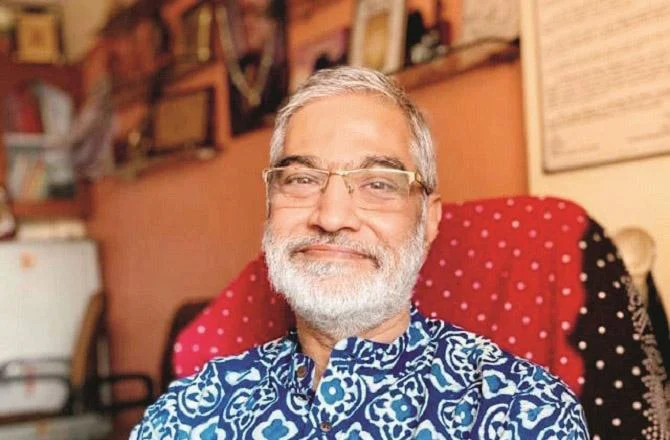Saeed Ahmad khan

MUMBAI-In a recent discussion on the political disenfranchisement of Muslims, representatives of the Revolution engaged in a dialogue with prominent figures Irfan Engineer, Ghulam Arif, and Javed Anand. The conversation was spurred by a recent comparison between Sikhs and Muslims made by Shiromani Akali Dal chief, Sikh Bir Singh Badal.
Irfan Engineer highlighted the long-standing attempt to politically marginalize Muslims since independence. He emphasized the need for a politics centered on secularism, constitutional protection, and the preservation of democracy. Engineer stressed the importance of connecting with backward classes, convincing them that their future security lies in such a political stance. He pointed out that current political dynamics often sideline the concerns of backward classes, contributing to the perception that secularism is solely a Muslim concern.
Social worker Javed Anand acknowledged the differences between Sikhs and Muslims but agreed with Sikh Bir Badal’s observation. He critiqued the lack of a democratic style of politics among Muslims, leading to the alienation of backward classes. Anand urged a strategic and non-extremist approach, learning from past mistakes. He emphasized the importance of convincing weaker sections that Muslims are actively working to be their voice.
Ghulam Arif emphasized five crucial points. Firstly, he stressed the need to avoid sentimentality and focus on practical solutions. Secondly, Arif highlighted the insufficient work on generating new narratives and emphasized the power of data in the modern world. Thirdly, he advocated for broadening the scope of politics beyond election politics, including effective non-governmental organizations and lobbying efforts.
Arif’s fourth point addressed the immediate need for training institutions to groom political and social leaders among Muslim youth. He proposed sending a fixed number of Muslim youth annually to play roles in various political and non-political institutions. Finally, he underscored the importance of setting ambitious targets for Muslim voter turnout in elections.
As the conversation continues, these insights and recommendations may serve as a starting point for addressing the political weightlessness of Muslims, fostering a more inclusive and representative political landscape.
